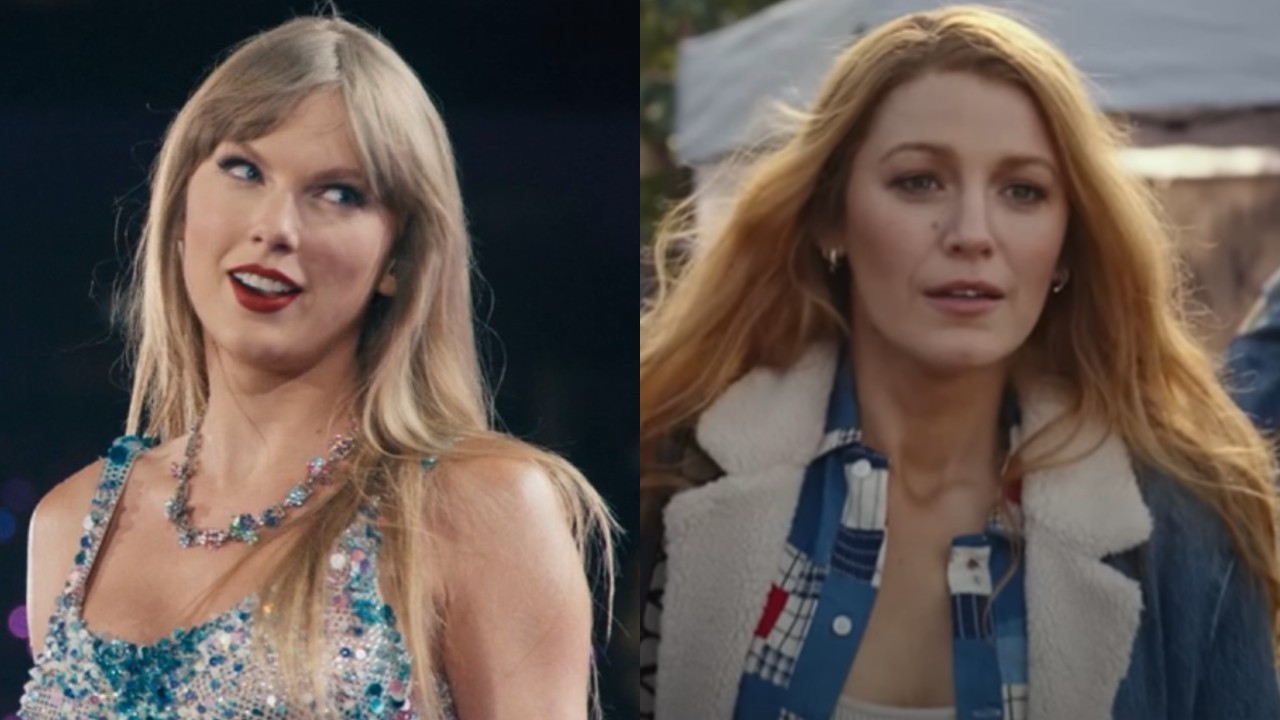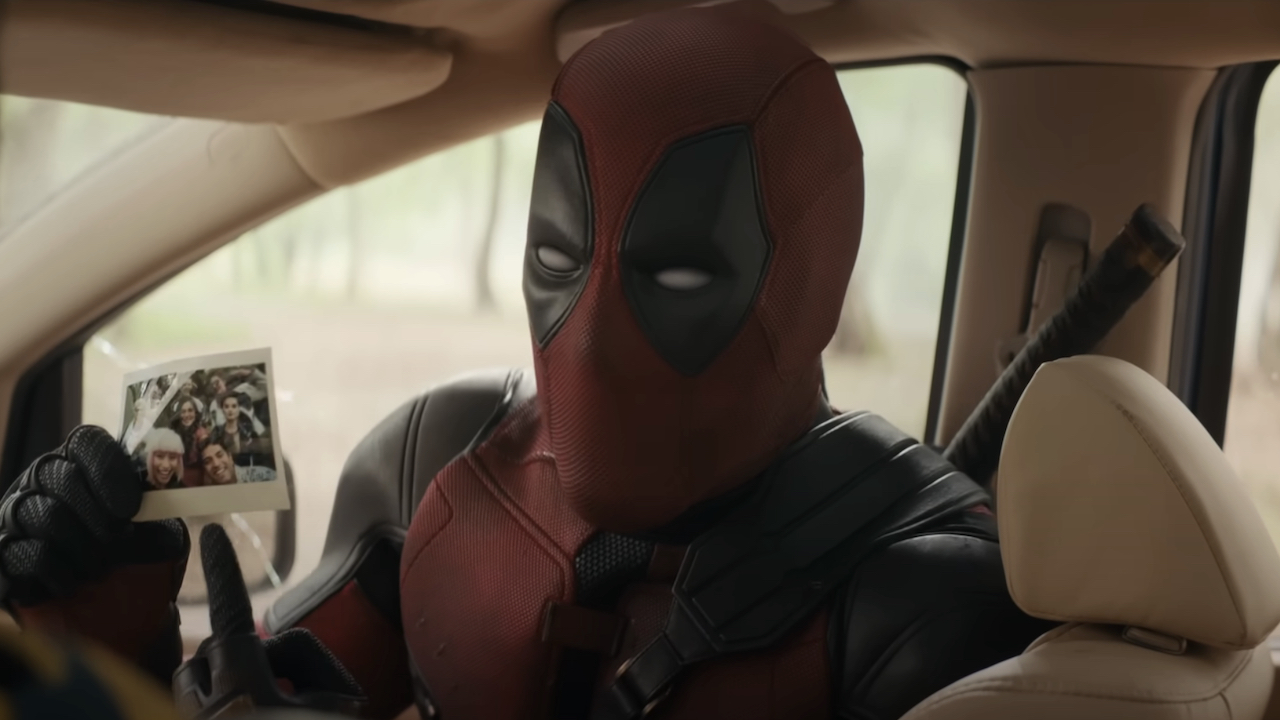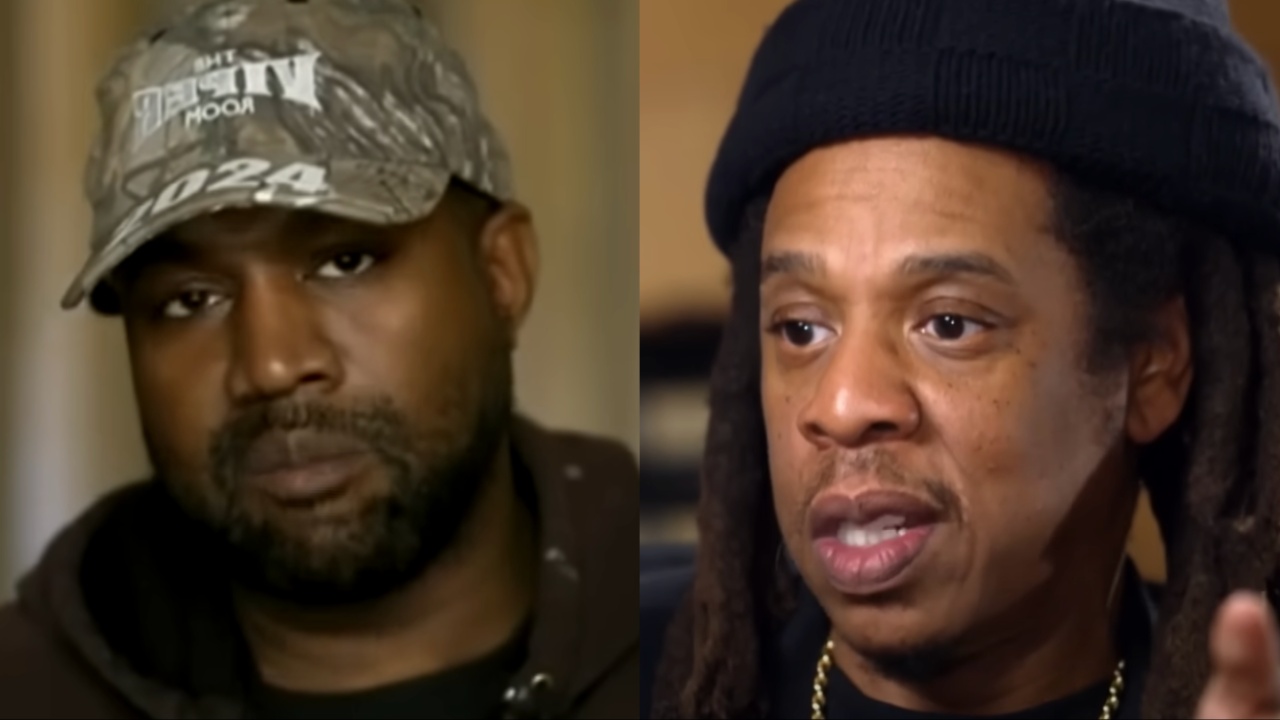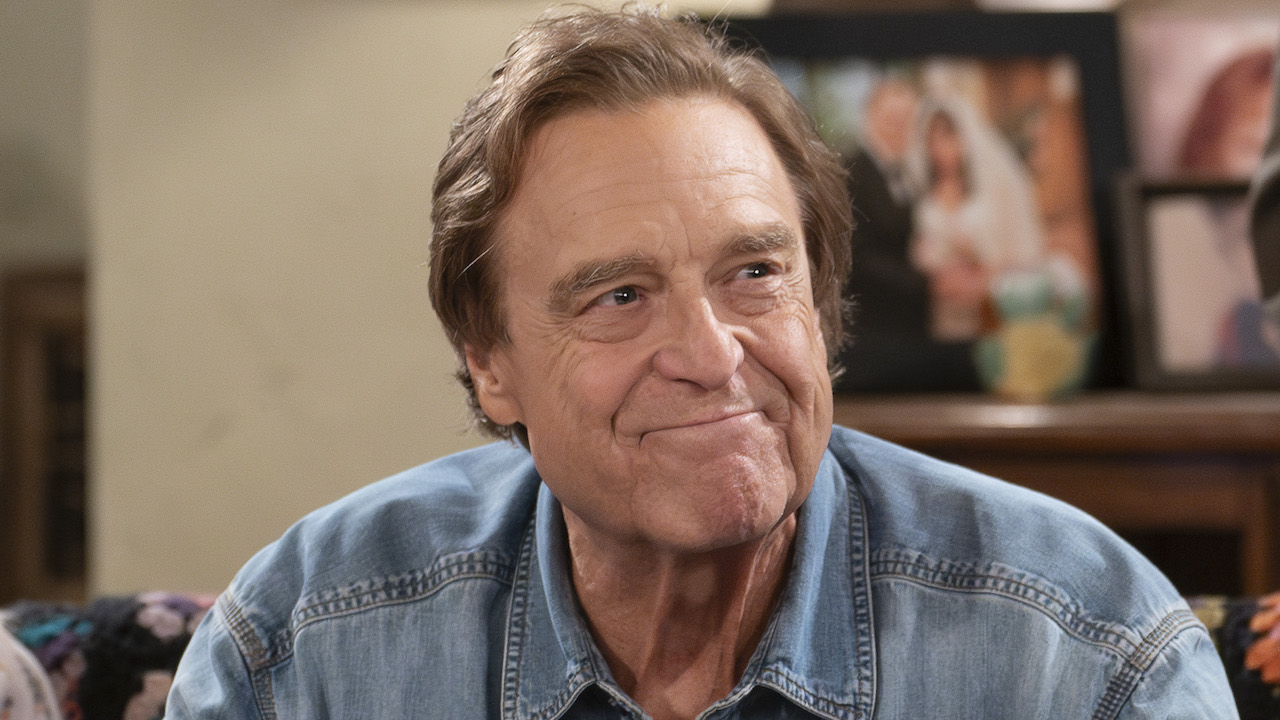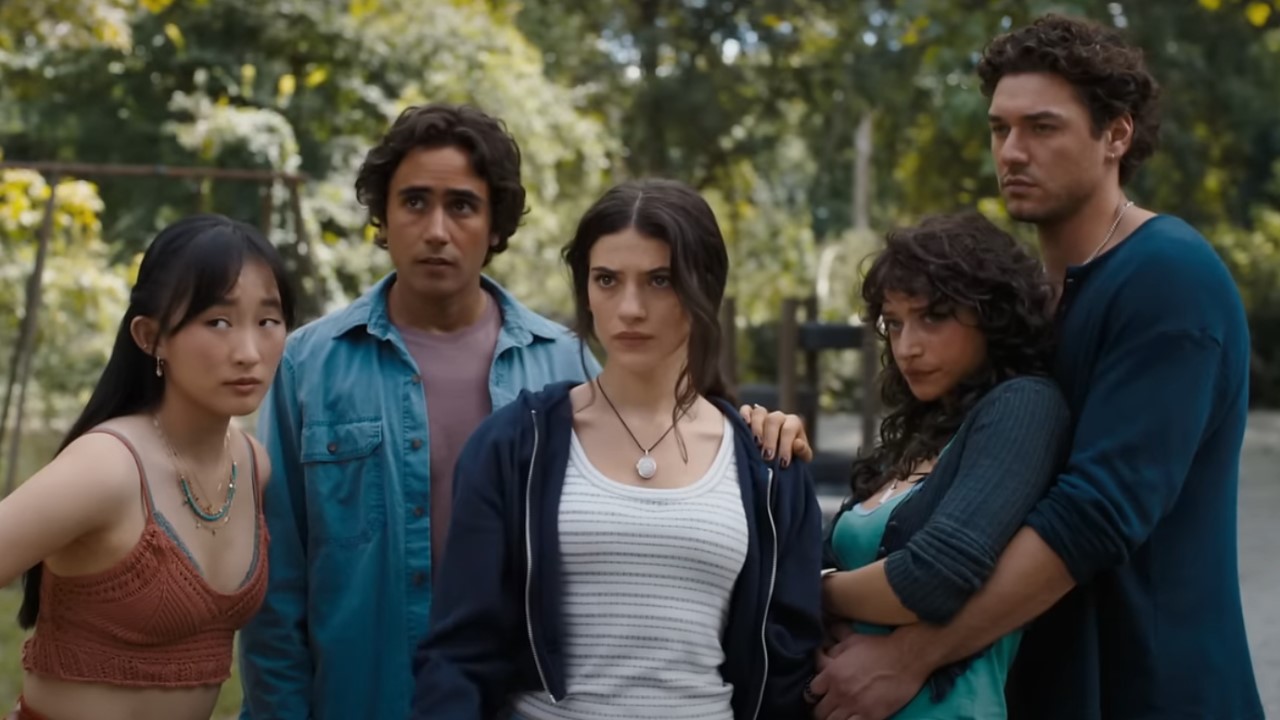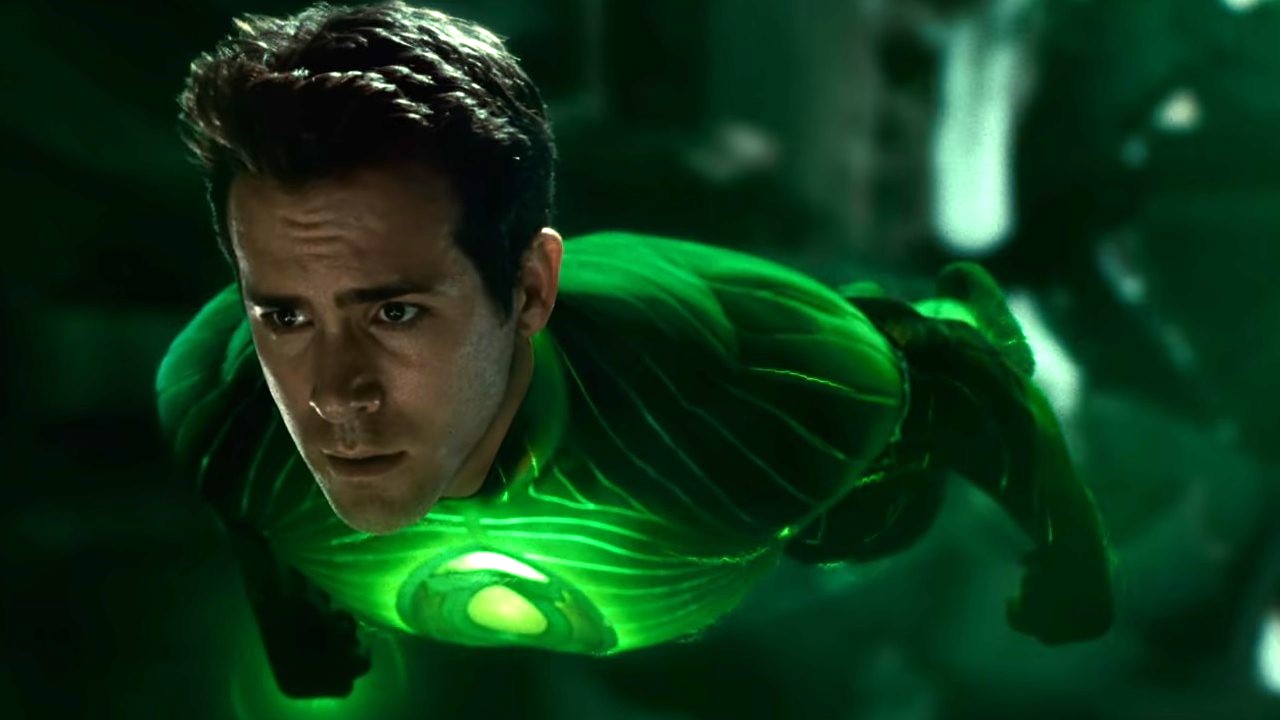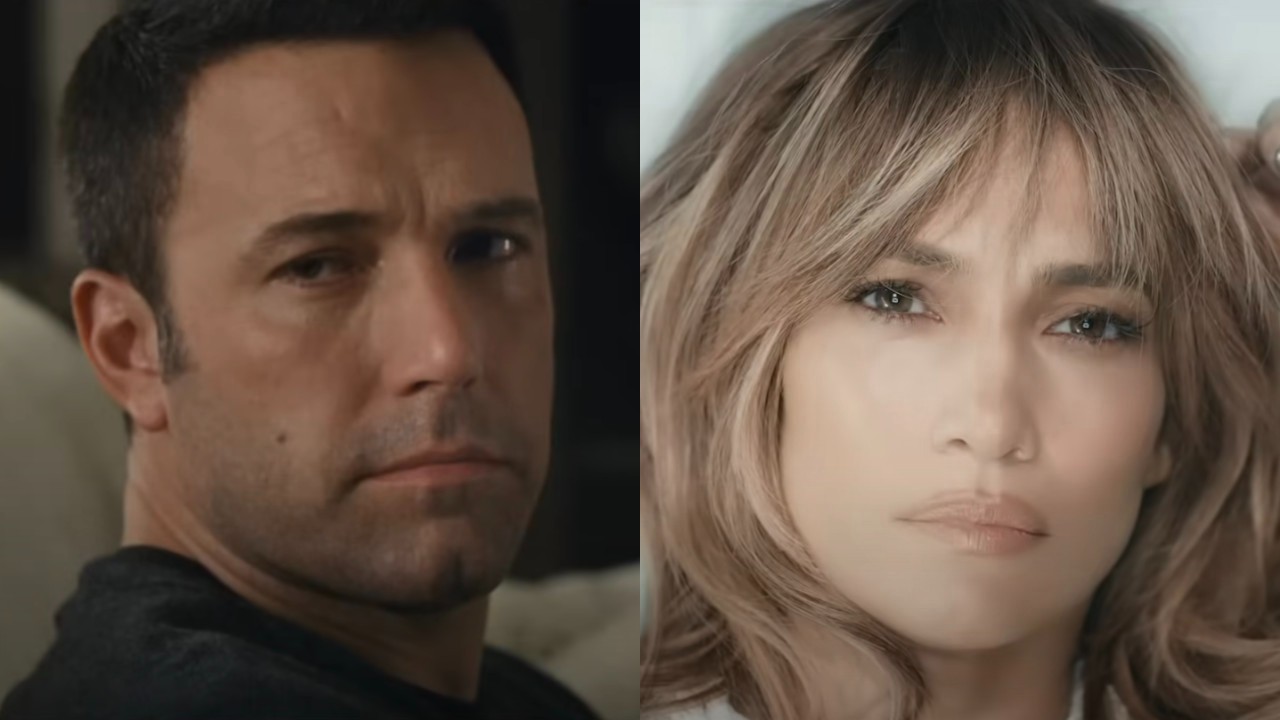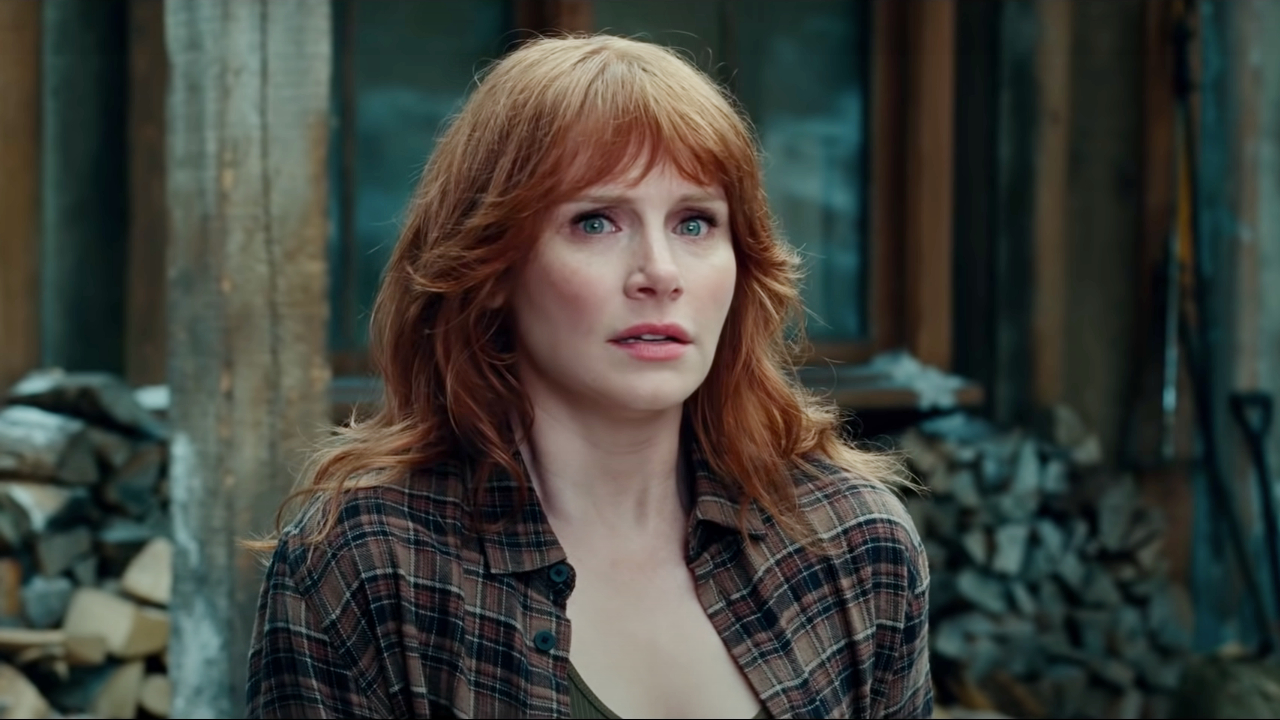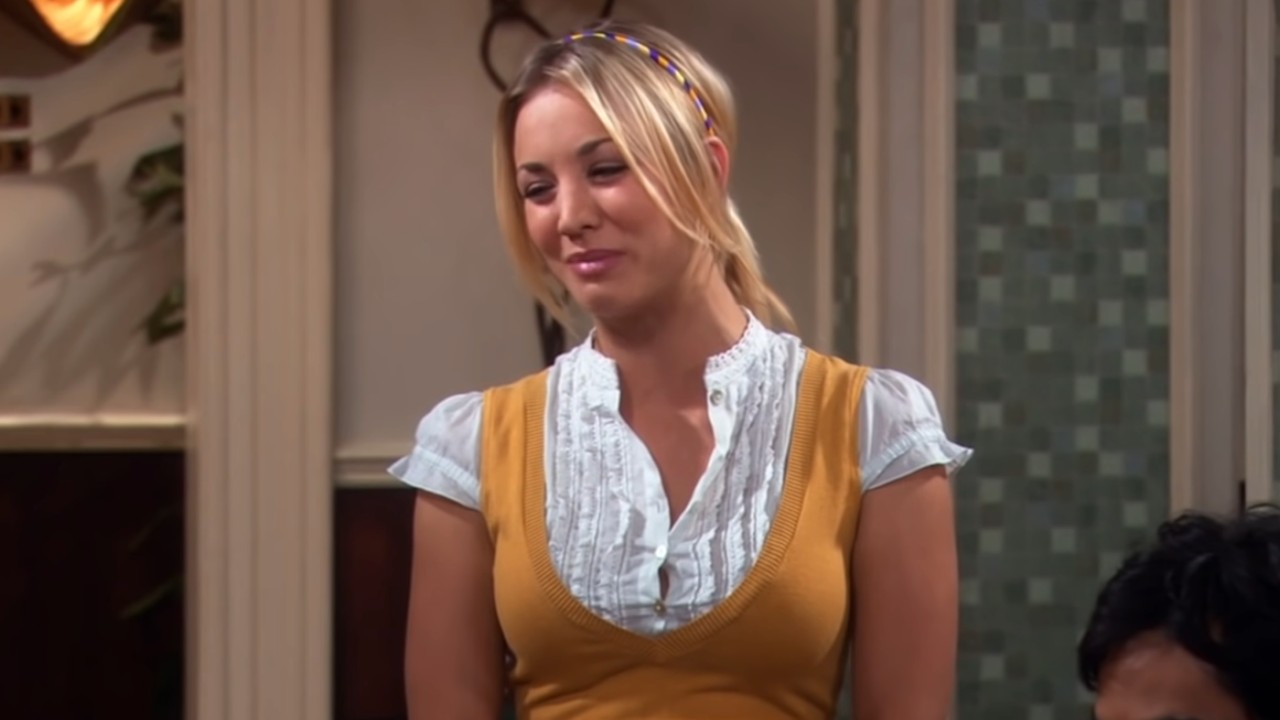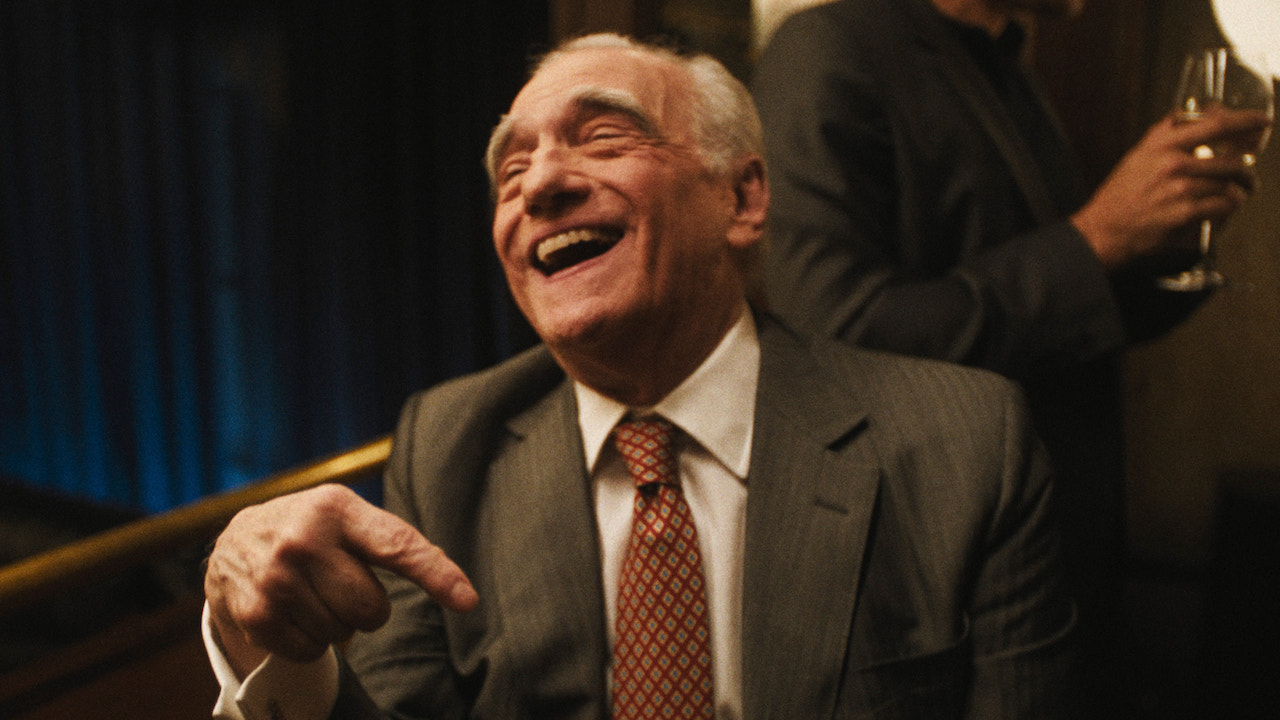Interview: Beautiful Boy's Michael Sheen And Maria Bello

After a school shooting, like those at Virginia Tech or Columbine High School, it’s common place for some people to blame the killer’s parents for what has happened. Those in grief believe that there must have been something wrong with the killer or killers’ upbringing that led to them committing such a tragedy. These people, however, never seem to take into account what the parents are actually going through. What do you do after you find out the child you’ve raised from birth has become a monster? In Beautiful Boy that’s exactly what happens to Michael Sheen and Maria Bello.
With their film set to come out this Friday, the two stars were kind enough to sit down with reporters in a roundtable interview to discuss the making of the film and I was lucky enough to take part. Check out the interview below in which Sheen and Bello discuss not taking the work home with them, the pressure that comes with single-take scenes and the research that went into the parts.
You know, being a parent, that’s the baggage that I brought to watching this film and I can’t imagine what it’s like to put yourself in the skin of somebody going through what these parents are. I mean, talk about a parent’s worst nightmare only amplified. Do you draw on your own emotions or is that a dangerous thing to do in this case when you’re treading into territory that every parent fears?
MICHAEL: That’s a good question, yeah. It’s a good question because it goes to the kind of heart of a fundamental problem for actors and acting is that if you draw on your own experiences, certainly when it comes to being a parent, if you get, if you kind of go, “Right, in this scene I’m gonna deal with my child dying or my child doing this or that or whatever,” and you go, “Well I have a child and I have to imagine my child doing that,” the danger is that you get to the end of the day and that’s not working anymore. I’m thinking about the death of my own child and that’s not really doing it because I’ve gotten too used to thinking about it. There’s a cost to that as a person, to go, I’ve been imagining the death of my own child, and that’s not really where you want to go into. At the same time, you’ve got to kind of, you’ve got to deal with it because otherwise it’s just acting, and then it’s sort of meaningless. So it’s a tricky area that I think it factors into. We talked about that when we were doing it.
MARIA: Yeah I know, you know, when I had my son it was the worst day and the best day of my life because I realized I will never love someone so much but I’ll never be able to keep them from the lessons he’s meant to learn in his lifetime, right? So I agree with Michael, I couldn’t put myself in that situation about my son dying, it’s just too much to bare for any parent to hold onto that for weeks at the time, so I was drawing on other stuff, really. And mostly I think you and I work in a similar way where we knew our characters and trusted each other enough to work off of each other, to find that sort of emotion together.
MICHAEL: Yeah, yeah. Rather than trying to drag it out on your own. Which can have an, if you’re doing something where there’s a lot of scenes between just two actors and if for whatever reason it’s not really happening or you’re not really connecting that well, then you do have to kind of, I found you do have to draw on stuff yourself and kind of make it happen for yourself. But in the case of something where the two actors really do connect with each other and trust each other, then I think you rely on a kind of, I think our bodies have memories without us having to consciously thing about it so rather than think hard about my daughter dying, or whatever, you just let that go and trust that that’s, that you have all the emotions you need in there, and by losing yourself in the scene that stuff kicks in without you having to spend the day thinking about horrific things happening to your child.
MARIA: And I think that has a lot to do with script and how well it’s written and how much it captures the emotion and takes you organically into those feelings.
CINEMABLEND NEWSLETTER
Your Daily Blend of Entertainment News
MICHAEL: And how much, I guess, the director allows you to do that. That’s why if you’ve got a director who keeps jumping in and going, “Uh, could you not do that? Could you do this?” it stops that process from happening. And on this it felt like we were given just the right amount of freedom and the right amount of guidance.
MARIA: Yeah, he really trusted us to find it.
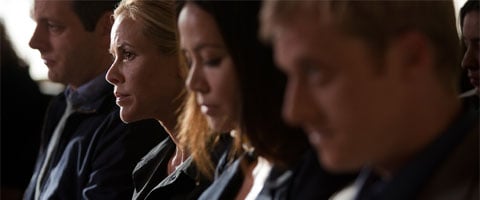
Maria, I was going to ask you, when you first got this, what was one of the elements that stuck out for you? I loved your performance in this.
MARIA: Thank you very much. You know I got this script probably a year before we made the movie and just got a gut feeling, and it was so well written that I wanted and needed to do that to explore that. I like the levels of grief, which I studied a bit before we did the movie. Usually a parent who loses a child goes through those levels of grief over years. We had to smash it into a week or two weeks of their lives and to make sure we sort of weren’t at the same level in every single scene. Usually a parent would just be in shock or grief for those two weeks, but I had to make it a little bit more interesting.
Did you talk to any parents that maybe were connected to maybe like Columbine or some other major, Virginia Tech or something?
MICHAEL: Well I think, honestly this film is about the most specific set of parents, it’s the parents of the person who perpetrates it. So even though any parents who are going through dealing with the loss of a child, there are certain things that are obviously the same about that experience, the parents of the child who does it, I think there are a lot of big differences as well. I know personally I felt very uncomfortable about the idea of trying to get in touch with the parents of someone who got through a similar experience. I didn’t really feel, I sort of asked myself, what do I stand to gain? Is that worse? What is there to be possibly lost? And ultimately I felt like our characters have no idea what they’re supposed to feel and no idea what the rules are and that’s part of their difficulty. There is no material about it out there really, there’s no real films made about it. Then part of that feeling of not quite knowing what the rules are, I thought would be quite useful, personally, rather than sort of talking to someone and “Now I know what happens.” So that feeling of being a bit not sure.
MARIA: You understand it more organically. It’s not like something you study and do research on, I think. But synchronicity, bizarrely, a week before we started shooting, Susan Klebold came out with her first interview ever in O Magazine, and it was funny because of what she said about blaming herself and not knowing and the process she went through, and it was, I found I really interesting that that was reflected in our script.
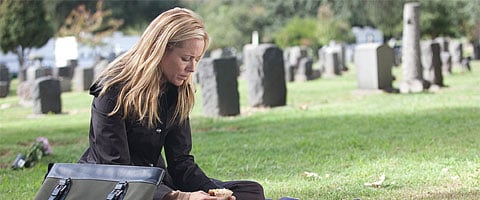
Can you talk about the way it was shot, I mean the longer scenes and the way the camera moved like a docu-drama? And did that help you? And did you carry this home every night or were you able to drop it on the set? Because it’s really heavy.
MICHAEL: Well I thought that the second part first. In a way you have to do all the work beforehand. In a way it doesn’t matter what the subject matter is, I don’t know if you agree with this, but no matter what the subject matter is, when you come to actually act it’s a game. It may be a very serious game, but it’s still a game, and if you lose that sense of play then I think the work suffers. The danger can be, because it’s very heavy subject matter, then you sort of feel like you have to come at it in a very heavy way and it just dies somehow. It’s just not quite right. It doesn’t live. In order for it to be alive when you’re doing it, you have to approach it as play, and so that’s nice about being in the right place, the right state of mind. I found that trying to keep, just stay present and open in between takes and we would chat, and I think we would, we never lost sight of what it was we were trying to do and the seriousness of what we were trying to do. It felt like, I think it can often be the way when you speak to actors, the biggest, heaviest things they work on are actually sometimes the most enjoyable experiences and I certainly felt that on this.
MARIA: There was a real sense of fun and play between us and a real curiosity about the work.
MICHAEL: Yeah, and exhilaration. It’s not often you kind of are in a situation where you go, I totally trust this person, I totally feel at ease with this person, I feel at ease in this situation, and there’s no other agenda or ego. All we’re doing is both wanting, or not just both, everyone, wanting to do the best we can on this, and it matters to us and we care about it, and nothing else is getting in the way. And that’s quite exhilarating and there’s a joy to that. That’s really important. You don’t want to sort of mess that up by going, “But I mustn’t enjoy this too much because it’s very heavy and serious.”
MARIA: And how fun was it, the hotel room scene? I mean that was really something. There’s only one cutaway. We did it four or five times before we were about to blow our brains out, but it was so fun it was like doing a play. It was eight minutes long and was really technical with the camera, you know we had to figure out movements and figured out how to film all of that. But boy that was an exhilarating day, that scene.
MICHAEL: Yeah, exactly. The first part of the question, being the camera, that scene obviously was one long take and so it was a dance, really, between Maria and myself and the camera operator. He’s the other character in the scene. There are mirrors up and there’s a TV and you don’t want to catch reflections, and so in a way we had to work out, just very loosely where positions might be. But then you sort of work around it. I remember when we were shooting, not just that scene, but the whole thing to begin with, I’d be like, because we didn’t work out set positions for the camera, I was doing marvelous work then and didn’t know if the camera was on me. Because we’d be doing it and it would be very docu-style and you wouldn’t know when the camera was on you, but what was wonderful about that as well was you just, in a way it was more like doing a play then because you’d just have to inhabit everything all the time and you don’t go, “Oh this is my bit now. I have to pop more into this now because this is my bit.” You just have to do the whole thing. It certainly gives it a freshness and a spontaneity and a life that you wouldn’t normally have, but it took a little while for me to get used that, Maria being the professional, she had no problem with that at all.
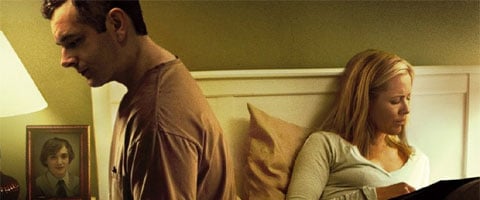
I’ve heard talk about the pressure you can feel as you get toward the end of the scene when you realize everything’s been going right, “If I’m the one who blows the line we have to...” Was there some of that going on where you feel like, this scene is happening right and now it’s suddenly, as you’re getting to the end of it, there’s a little pressure to say, “We better keep going because it’s happening.”
MARIA: I think that always happens, for me anyway, when I’m acting and creating with a group of people, you know, you have that moment where you’re like, “I forgot my line.” I’m more forgiving of myself now, as I get older I don’t apologize for it anymore, which I used to do, like, “Oh, sorry, I forgot my line.” I’m just like, “Okay, gotta go back and start again.”
MICHAEL: And also, there’s still moments where you get something really interesting, like you get to the moment where you go, “Oh I can’t remember what I’m saying,” or you say the wrong thing or whatever, and those, when people talk about happy accidents, that’s when they are. Now you can choose to do one of two things. When you get to that moment, you’re in it, and it’s all going well, and then suddenly, something goes wrong.
You can go, and I think Maria’s talking about when we were younger, you kind of go, “Oh! I’m sorry! I messed up. Sorry! Sorry everyone, sorry.” Or, now I think we probably have gotten to the point where we go, “Ah, this is good. What’s gonna happen now?” and how do we, rather than cutting out of it and stopping it, cause you actually, what happens is it’s a little herald, a little messenger saying, “You’re in an interesting area here.” And I think we tend to go, “Oh, I feel really vulnerable, stop stop stop.” And then when you get a bit braver I think, a bit more experienced, you go, “Oh I’m feeling really vulnerable, oh, what’s, let’s go with it. This is another way to write and let’s see what happens with it.” And then you get those potentially really great accidents that happen with it.
MARIA: I’ve often said to directors, “Please don’t stop the scene.” Right? Let us go and don’t call cut every time we forget a line or something. You know, what’s the line, give me the line, and just continue to force through it, because it puts you, in a way, more in the moment, more in the truth.
MICHAEL: Exactly, exactly.

The film opens up and basically you’re in a strange couple, and suddenly not only does your son die but the world is against you. What did you think about that aspect of the film?
MICHAEL: Well I thought it was really interesting that the film doesn’t begin with a couple who are, on the surface, happy and everything’s going well, and then tragedy strikes, and then it all goes. I thought it was really interesting choice to start the film with a couple who’ve sort of come to the end of the road, they think, and then the story, I guess for me the story was much much more about, is it possible for two people to kind of find each other again? And the journey that they go on to do that in this is a very extreme journey and they go into some very dark places, but ultimately that’s why I felt like it was a very hopeful, positive story, because it’s about, this is an extreme act of tragedy that happens, but stuff happens all the time that’s difficult and painful and puts a lot of pressure on a couple. Ultimately it’s about whether you can find each other again. So I thought that was really, a really interesting start for it, and that they’re forced to be together. When one thing they want to do at the beginning of the film is sort of get away from each other, they’re forced to be together and that forces certain things to happen that maybe couldn’t happen in the relationship beforehand.
MARIA: It seems to me that from what people say, friends say about being in long term relationships, and what you read, I don’t do those so I’ve never had one so I wouldn’t know, but people say that you start lying, in a way, to yourself and each other, to make each other feel safe in some way, to show up the way the person things you should show up and this sort of dishonesty with yourself and the other person I think breeds a resemblance and a contempt which you see in these two people. They become so disparate and can’t be vulnerable with each other and really share their truth, and this tragedy blows that up and makes them confront each other.
Now one thing that really fuels what’s going on around you, the people around you, is the suicide manifesto that the two of you, on camera you never see that actual video. Was a complete video done with Kyle’s character, Sammy, giving his explanation, and did you get to see it if it was done? And it was just left out of the film?
MICHAEL: I didn’t see it if it was done.
MARIA: I didn’t see it either.
MICHAEL: I’m not sure, I think he did do, I’m fairly certain he did a whole thing. I only want to see what my character sees, really and so I’m not sure if we were given the opportunity, I’m pretty sure he did do one though.
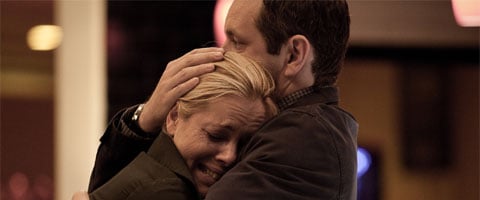
The emotion of grief is not something that we don’t often see played out in such a naturalistic way. I mean, was he falling in love or falling out of love, or different family relationships, but dealing with grief is something that is, I think it’s kind of rare for an actor to get that opportunity. Is that something that you look at and say, because everyone is going to go through this in one way or another, it’s part of life, is it more important to get that reel, rather than falling in love, for instance.
MICHAEL: Well it’s interesting that we see death constantly on film. Like, constantly. Next time you watch a film, have a look, in the back of your mind spend a day going, “Let me see how many times I see people die today.” Because you will see hundreds upon hundreds of people dying. And then how much you actually see the grief process and the consequences and ramifications of death being played out in front of you, and it’s not much. There’s something wrong there, and for a culture that has such a problem with death, we seem to deal with it in a quite bizarre way, where we see people being shot and killed and blown up. And we find it funny and we find in sexy and we find it all those sort of things, but the reality of it is that every day people are dying, people are really sad, and they grieve and they go through a really difficult process.
So I think as uncomfortable as it is and as uncommercial as it may be, or whatever, that as a society I think it’s really important that we look at that and we look at the reality of it given that we surround ourselves with the fantasy of it constantly. We live in a bubble of the fantasy of death, but the reality of it, and it’s something that we obviously all face, and have to deal with at some point. It’s sort of scary, I think to, in a way this is an extreme version of what happens to everybody when they actually experience death in some way where you suddenly feel alone, you suddenly feel like “There are still people walking around in the street outside, I’m going through the worst experience of my life, and the world is carrying on.” And the awfulness of that and the feeling of, “I don’t know what to do, where’s the rule book for how you deal with this sort of stuff?” I mean not everybody has to painfully deal with that child having done something that they’ve done, but everyone has to go through that and that’s frightening. So I think it’s really important that we look at this kind of stuff.
MARIA: I do too.

Eric Eisenberg is the Assistant Managing Editor at CinemaBlend. After graduating Boston University and earning a bachelor’s degree in journalism, he took a part-time job as a staff writer for CinemaBlend, and after six months was offered the opportunity to move to Los Angeles and take on a newly created West Coast Editor position. Over a decade later, he's continuing to advance his interests and expertise. In addition to conducting filmmaker interviews and contributing to the news and feature content of the site, Eric also oversees the Movie Reviews section, writes the the weekend box office report (published Sundays), and is the site's resident Stephen King expert. He has two King-related columns.
